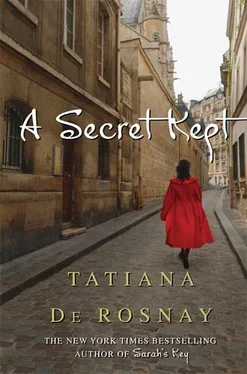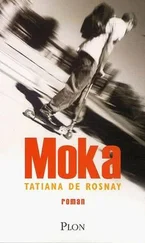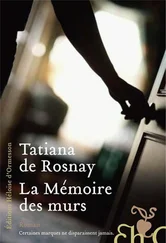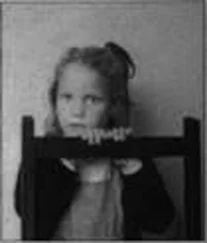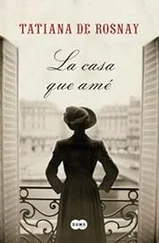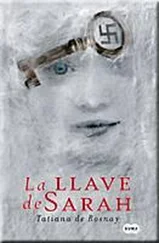
Tatiana de Rosnay
A Secret Kept
(c) 2010
This book is for
Cecilia and Alexis, my wonderful sister and brother,
and for Cedric and Caroline, their loved ones.
In loving memory of Pierre-Emmanuel (1989-2006)
Let my name be ever the household word that it always was.
Let it be spoken without an effort, without the ghost of a shadow upon it.
– HENRY SCOTT HOLLAND
“Manderley was no more.”
– DAPHNE DU MAURIER, Rebecca

I am shown into a small, drab room, told to sit down and wait. Six empty brown plastic chairs face each other on tired linoleum. In a corner, a fake green plant, shiny leaves coated with dust. I do as I am told. I sit down. My thighs tremble. My palms feel clammy, my throat parched. My head throbs. I think, I should call our father now, I should call him before it gets too late. But my hand makes no effort to grab the phone in the pocket of my jeans. Call our father and tell him what? Tell him how?
The lighting is harsh, glaring strips of neon barring the ceiling. The walls are yellowish and cracked. I sit there, numb. Helpless. Lost. I long for a cigarette. I wonder if I am going to retch, bring up the bitter coffee and stale brioche I had a couple of hours ago.
I can still hear the screech of the wheels, feel the sudden lurch of the car as it veered sharply to the right, careening into the railing. And her scream. I can still hear her scream.
How many people have waited here? I think. How many people have sat where I am sitting now and waited for news of their loved ones? I cannot help imagining what these jaundiced walls have seen. What they know. What they remember. Tears, shouts, or relief. Hope, pain, or joy.
The minutes click by. I watch the round face of a grimy clock above the door. There is nothing else for me to do but wait.
After half an hour or so, a nurse comes in. She has a long, horsey face, skinny white arms.
“Monsieur Rey?”
“Yes,” I say, my heart in my mouth.
“You need to fill out these papers. With her details.”
She hands me a couple of sheets and a pen.
“Is she all right?” I mumble.
My voice seems thin and strained.
She flickers watery, lashless eyes over me.
“The doctor will tell you. The doctor will come.”
She leaves. She has a sad, flat ass.
I spread the sheets of paper over my knees with trembling fingers.
Name, birth date and place, marital status, address, social security number, health insurance number. My hand still shakes as I print out “Mélanie Rey, born August 15, 1967, at Boulogne-Billancourt, single, 49 rue de la Roquette, Paris 75011.”
I have no idea what my sister’s social security number is. Or her health insurance number for that matter. All that stuff must be in her bag. Where is her bag? I can’t remember anything about her bag. Just the way her body slumped forward when they hauled her out of the car. The way her limp arms hung down to the ground from the stretcher. And there I was, not a hair out of place, not a bruise on my skin, and I had been sitting right next to her. I flinch. I keep thinking I am going to wake up.
The nurse comes back with a glass of water. I gulp it down. It has a metallic, stale taste. I thank her. I tell her I don’t have Mélanie’s social security number. She nods, takes the sheets, and leaves.
The minutes inch by. The room is silent. It is a small hospital. A small town, I guess. In the suburbs of Nantes. I’m not quite sure where. I stink. No air-conditioning. I can smell the sweat trickling under my armpits, gathering around my groin. The sweaty, meaty smell of despair and panic. My head still throbs. I try breathing calmly. I manage to do this for a couple of minutes. Then the helpless, awful feeling takes over and swamps me.
Paris is more than three hours away. I wonder again if I should call my father. I tell myself I need to wait. I don’t even know what the doctor has to say. I glance down at my watch. Ten thirty. Where would our father be now? I wonder. At some dinner party? Or watching cable TV in his study, with Régine in the next room, on the phone, painting her nails?
I decide to wait a little longer. I am tempted to call my ex-wife. Astrid’s name is still the first one that pops up in times of stress or despair. But the thought of her with Serge, in Malakoff, in our old house, in our old bed, with him invariably answering the phone, even her mobile, for Christ’s sake-“Oh, hi, Antoine, what’s up, man?”-is just too much. So I don’t call Astrid, although I long to.
I stay in the small, stuffy room and try once more to remain calm. Try to stop the panic rising within me. I think of my kids. Arno in all his teenage glory and rebellion. Margaux, a creature of mystery at fourteen. Lucas, still a baby at eleven, compared with the other two and their raging hormones. I simply cannot imagine myself telling them, “Your aunt is dead. Mélanie is dead. My sister is dead.” The words make no sense. I push them away.
Another hour creeps by. I sit there, my head in my hands. I try to sort out the mess building up in my mind. I start thinking about the deadlines I need to keep. Tomorrow is Monday, and after this long weekend, there are many urgent things to be done-that unpleasant Rabagny and his god-awful day-care center I should not have taken on; Florence, that hopeless assistant I know I have to fire. But how can I possibly think of this? I realize, appalled at myself. How can I think of my job now, at this precise moment when Mélanie is somewhere between life and death? I say to myself with a sinking heart, Why Mélanie? Why her? Why not me? This trip had been my idea. My present for her birthday. That fortieth birthday she was so upset about.
A woman of my age comes in at last. A green operating blouse and one of those funny little paper hats surgeons wear. Shrewd hazel eyes, short chestnut hair touched with silver. She smiles. My heart leaps. I rush to my feet.
“That was a close call, Monsieur Rey,” she says.
I notice small brown stains on the front of her uniform. I wonder with dread whether those stains are Mélanie’s blood.
“Your sister is going to be all right.”
To my horror, my face crumples up, tears spill out. My nose runs. I am acutely embarrassed to be crying in front of this woman, but I can’t prevent it.
“It’s okay,” the doctor says. She grips my arm. She has small, square hands. She pushes me back down into the chair, sits beside me. I bawl the way I used to when I was a kid, deep sobs that come from the gut.
“She was driving, right?”
I nod, try to tidy up my damp nostrils with the back of my hand.
“We know she wasn’t drinking. We checked that. Can you tell me what happened?”
I manage to repeat what I told the police and the ambulance people earlier on. That my sister wanted to drive the rest of the way home. That she was a reliable driver. That I had never been nervous with her at the wheel.
“Did she black out?” asks the doctor. The name on her badge reads: DR. BÉNÉDICTE BESSON.
“No, she didn’t.”
And then it comes back to me. Something I had not told the ambulance people, because I only remember it just now.
I look down at the doctor’s small, tanned face. My own face is still twitching with the crying. I catch my breath.
“My sister was in the middle of telling me something… She turned to me. And then it happened. The car drove off the highway. It happened so fast.”
Читать дальше
